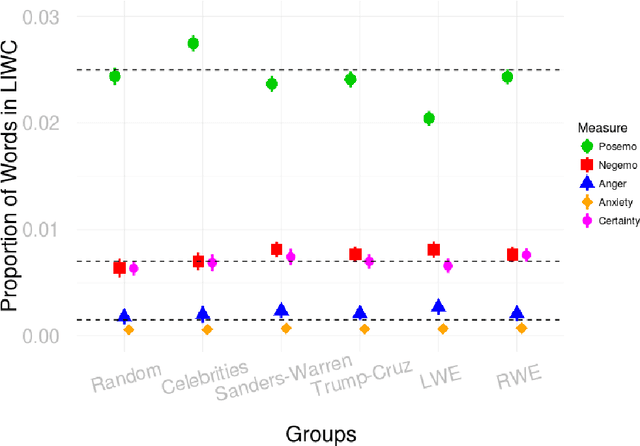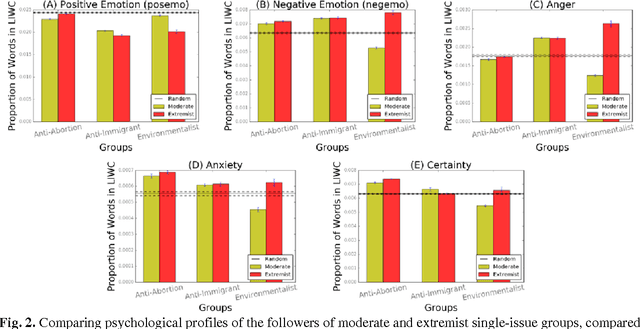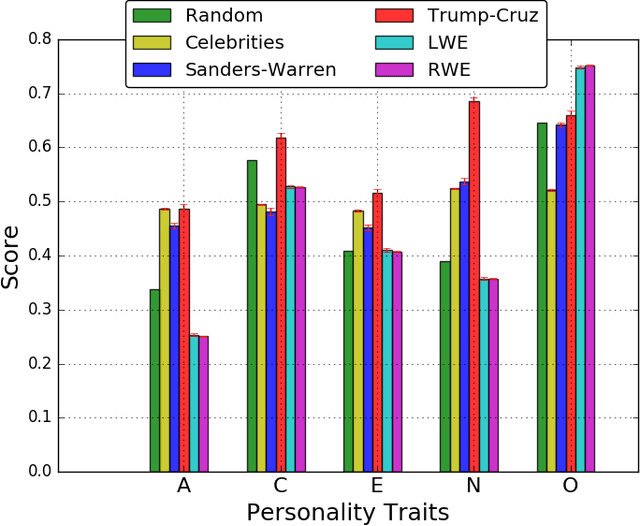Psychological and Personality Profiles of Political Extremists
Paper and Code
Apr 01, 2017


Global recruitment into radical Islamic movements has spurred renewed interest in the appeal of political extremism. Is the appeal a rational response to material conditions or is it the expression of psychological and personality disorders associated with aggressive behavior, intolerance, conspiratorial imagination, and paranoia? Empirical answers using surveys have been limited by lack of access to extremist groups, while field studies have lacked psychological measures and failed to compare extremists with contrast groups. We revisit the debate over the appeal of extremism in the U.S. context by comparing publicly available Twitter messages written by over 355,000 political extremist followers with messages written by non-extremist U.S. users. Analysis of text-based psychological indicators supports the moral foundation theory which identifies emotion as a critical factor in determining political orientation of individuals. Extremist followers also differ from others in four of the Big Five personality traits.
 Add to Chrome
Add to Chrome Add to Firefox
Add to Firefox Add to Edge
Add to Edge